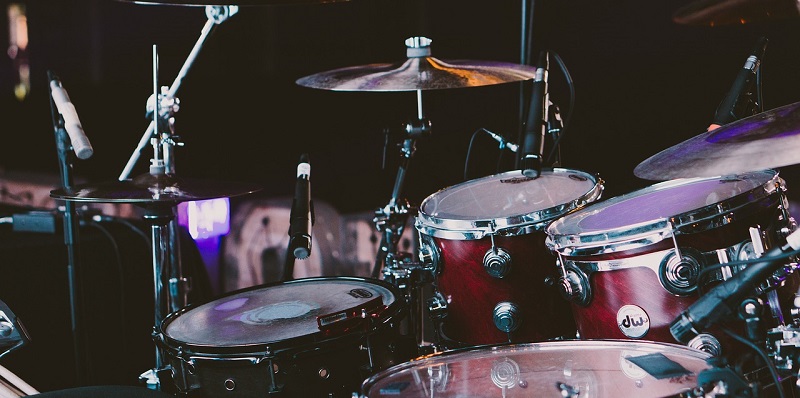Music has always been a powerful tool for human expression, delivering emotions and connecting people across cultures. With advancements in technology, Artificial Intelligence (AI) has emerged as a game-changer, transforming the landscape of music creation, distribution, and consumption. Music, now propelled by AI, is empowering musicians through advanced music analysis, offering new possibilities, and pushing the boundaries of what is possible in the industry.
AI’s Role in Generating Fresh and Unique Music Pieces
Traditionally, musicians have drawn inspiration from their influences and experiences to create new music. However, AI algorithms equipped with deep learning capabilities can study the intricacies of various genres, artists, and even specific songs, enabling musicians to generate fresh and unique pieces. By analyzing vast quantities of data, AI can identify patterns, musical elements, and compositions that resonate with listeners, presenting musicians with a wealth of novel ideas and compositions.
AI-powered software for analyzing and adjusting tracks
AI-powered software has revolutionized the post-production process, allowing musicians to achieve a polished final product. With the ability to analyze a track, AI algorithms can make adjustments to aspects such as volume, equalization, and compression, ensuring an optimized listening experience. This not only saves musicians time but also enhances the quality of their music, making it more appealing to a wider audience.
Predicting Listener Preferences through Advanced Music Analysis
Understanding listener preferences is crucial for musicians looking to connect with their audience on a deeper level. Advanced music analysis powered by AI can predict listener preferences by analyzing vast amounts of data, such as streaming patterns, social media activity, and user feedback. This invaluable insight enables musicians to tailor their music to their fans’ tastes, enhancing their chances of creating music that resonates with their audience.
Analyzing listening habits to inform the creative process
AI can go beyond predicting listener preferences to inform the creative process itself. By analyzing listening habits, AI algorithms can identify patterns and trends among listeners. Musicians can leverage this valuable information to shape their creative direction, ensuring that their music aligns with evolving listener expectations. By staying informed about emerging trends, musicians can adapt their style and sound while maintaining their authenticity.
Predicting Future Hits and Aiding Decision Making
The ability to predict future hits is one of the most exciting offerings of AI in the music industry. By analyzing vast amounts of data from streaming platforms, social media, and other sources, AI algorithms can identify patterns and indicators that suggest a track’s potential for success. This insight is invaluable to both musicians and record labels, enabling them to make informed decisions about which tracks to promote and invest resources in. AI-powered predictive analytics reduce the element of uncertainty and increase the chances of success in an increasingly competitive industry.
Detecting illegal copies of songs
AI’s advanced music analysis capabilities are not confined to creative aspects alone; they also play a role in protecting musicians’ intellectual property rights. With the proliferation of digital platforms, illegal copying and piracy pose significant challenges. However, AI algorithms trained to recognize audio signatures can swiftly detect illegal copies of songs, thereby preserving artists’ rights and ensuring fair compensation for their work.
Acknowledging the Human Touch in Music
While AI offers numerous benefits, it is vital to recognize that the human touch remains irreplaceable in music. Music is a deeply personal and emotional art form, and it is the human element that gives it its soul. AI can augment and enhance the creative process, but it cannot fully replicate the depth of human emotion, experiences, and interpretation that musicians bring to their craft. The marriage of technology and human creativity has the potential to elevate music to new heights, striking a synergy that unites the best of both worlds.
A Harmonious Future
As we continue to explore the potential of AI in music, we can embrace a future where technology and creativity harmoniously coexist. AI’s advanced music analysis capabilities, combined with human creativity, will continue to push the boundaries of what is possible in music creation, distribution, and consumption. The democratization of music creation, the personalization of listening experiences, and the discovery of new and diverse talent are all within reach as the music industry embraces AI as a powerful tool for innovation.
In conclusion, AI has become a transformative force in music, reshaping the way music is created, distributed, and consumed. From generating fresh and unique music pieces to predicting listener preferences, AI offers unparalleled insights and tools for musicians. However, it is essential to remember that the human touch in music remains irreplaceable, as it is our innate creativity and emotion that fuel the art form. By embracing AI as a partner, musicians can find new avenues for experimentation, innovation, and connection, ushering in a harmonious future where technology and creativity propel music to new frontiers.

